Ibadan paused and then erupted in celebration on Friday, 26 September 2025, when Rashidi Adewolu Ladoja was crowned the 44th Olubadan of Ibadanland at Mapo Hall. The day was filled with tradition, spectacle, politics and emotion.
The moment the beaded crown touched his head, Ibadan gained not just a new monarch but also a man whose journey has taken him from corporate boardrooms to the governor’s office and now to the palace.
The ceremony that stopped Ibadan
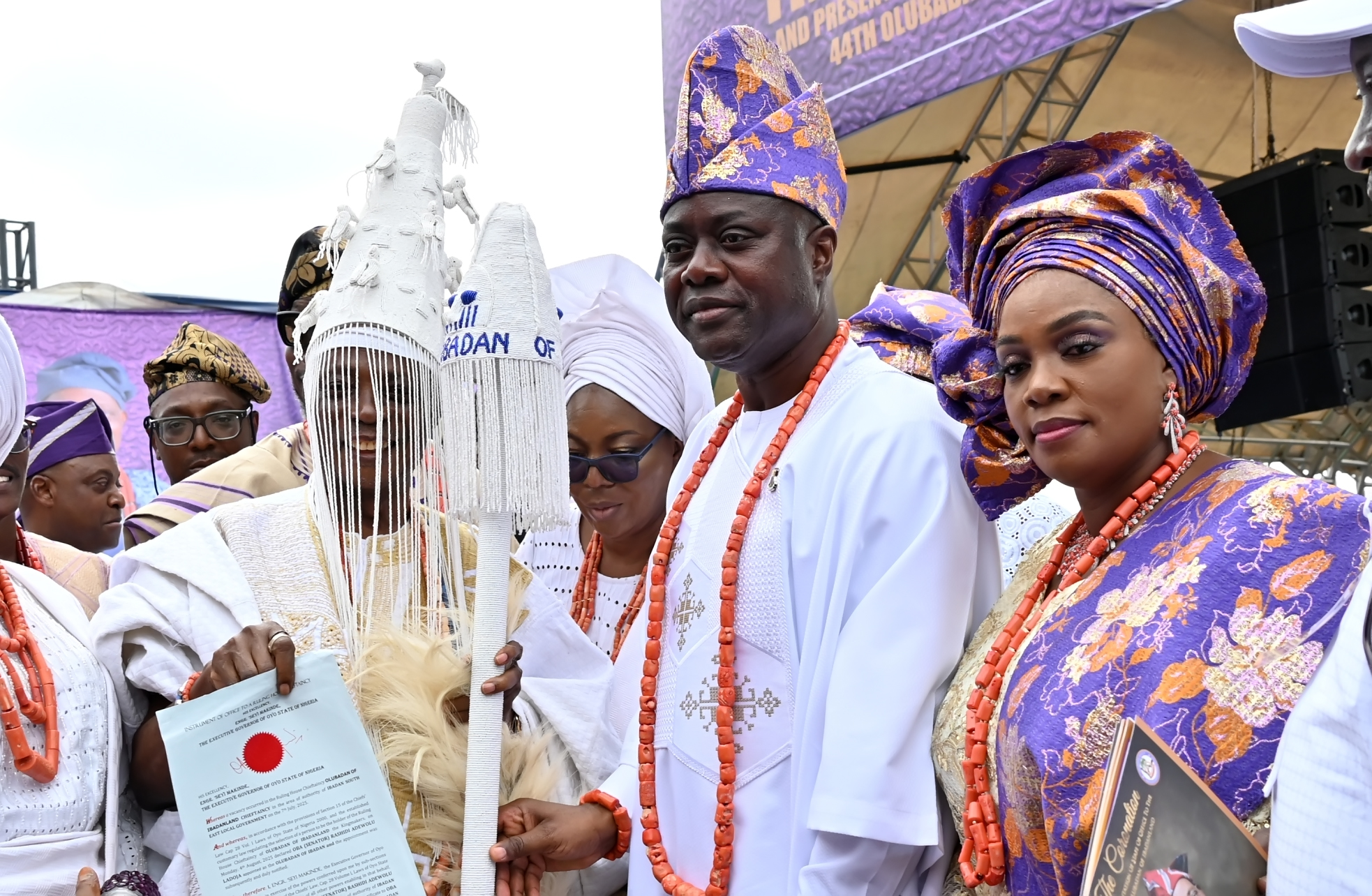
Mapo Hall was the heartbeat of the coronation. Governor Seyi Makinde performed the formal presentation of the staff and certificate of office, completing the constitutional requirement. President Bola Ahmed Tinubu was in attendance alongside governors, traditional rulers and dignitaries. His presence lifted the event from a local coronation to a national spectacle, while the packed crowds outside Mapo showed just how much this stool means to Ibadan people.
But before the fanfare at Mapo, there were quieter, sacred rites. Ladoja received the crown at the Ose Meji Temple and the Akoko leaf at the Labosinde compound, rituals that anchor every Olubadan in Ibadan’s spiritual and ancestral lineage. Tradition and modernity moved hand in hand throughout the day.
Who is Oba Rashidi Adewolu Ladoja

The new Olubadan was born in 1944 in Gambari, Ibadan. He attended local schools before studying in Belgium at the University of Liège. His career has swung wide: first in business, then into politics as a Senator in the Third Republic and later as Governor of Oyo State from 2003 to 2007. His governorship is remembered for development efforts but also for the political turbulence of his impeachment in 2006 and eventual reinstatement by the courts.
Beyond politics, Ladoja has long been embedded in Ibadan’s chieftaincy system. He rose steadily through the civil line of succession, holding the title of Otun Olubadan before becoming next in line to the throne. That climb reflects Ibadan’s unique rotational and hierarchical succession structure, one of the most orderly among Yoruba kingships.
The road to the throne
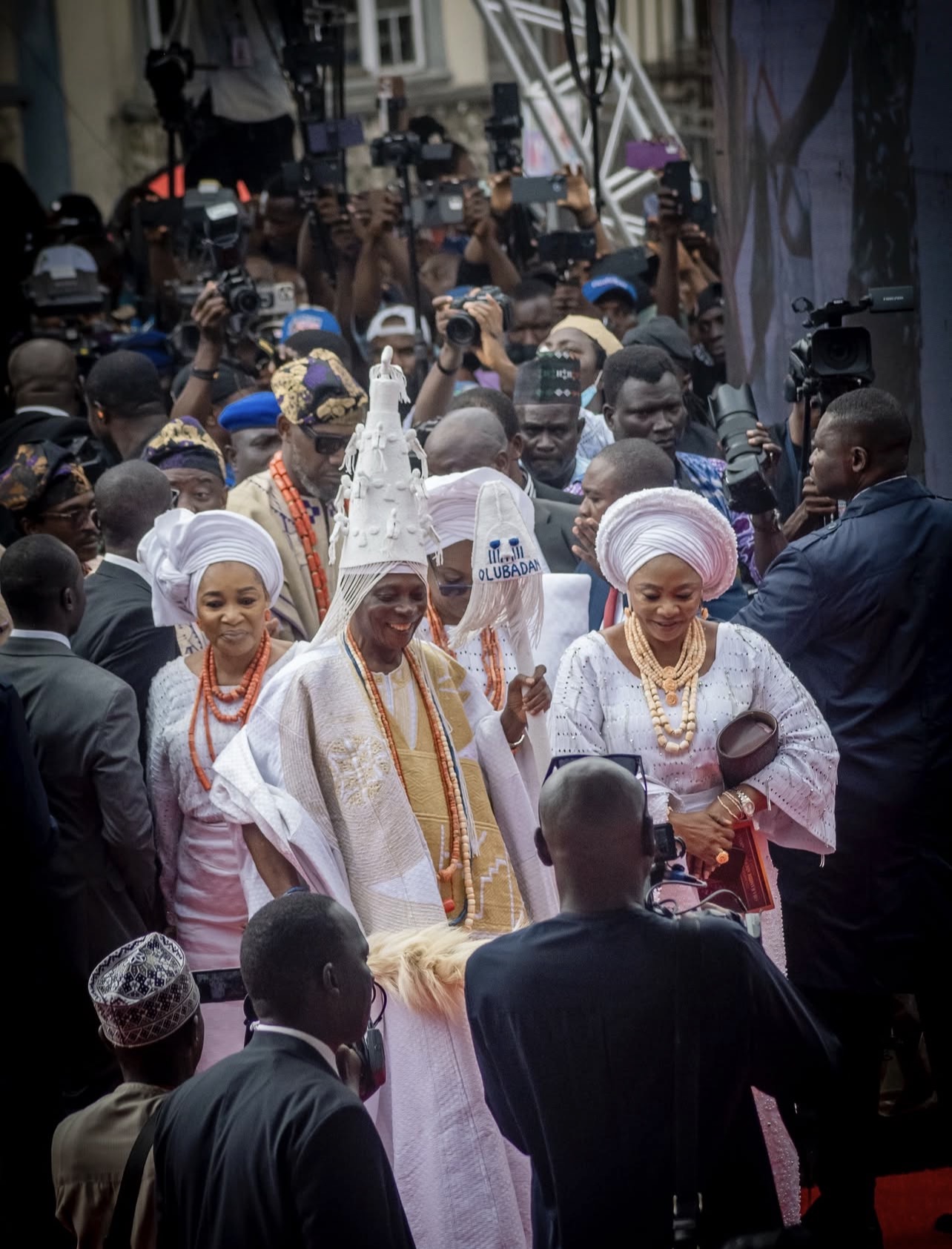
The path to yesterday’s coronation began with the passing of Oba Owolabi Olakulehin on 7 July 2025. Following custom, the Olubadan-in-Council convened and nominated Ladoja on 4 August. Governor Makinde approved the nomination, clearing the way for the installation. Each of these steps reinforced the balance of tradition and government recognition that defines Ibadan’s kingship.
Why this crowning is historic

This installation is significant for several reasons. Ladoja is the first man in Ibadan’s history to serve as an elected state governor and later wear the beaded crown as Olubadan. That fact alone reshapes how Nigerians think about the boundary between political power and traditional authority.
It also matters because Ibadan is Nigeria’s largest indigenous city. Its monarchy is more than pageantry; it is a rallying point for identity and memory. Every coronation refreshes that connection and reasserts Ibadan’s place in Yoruba culture and Nigerian tradition.
Expectations from the new Olubadan
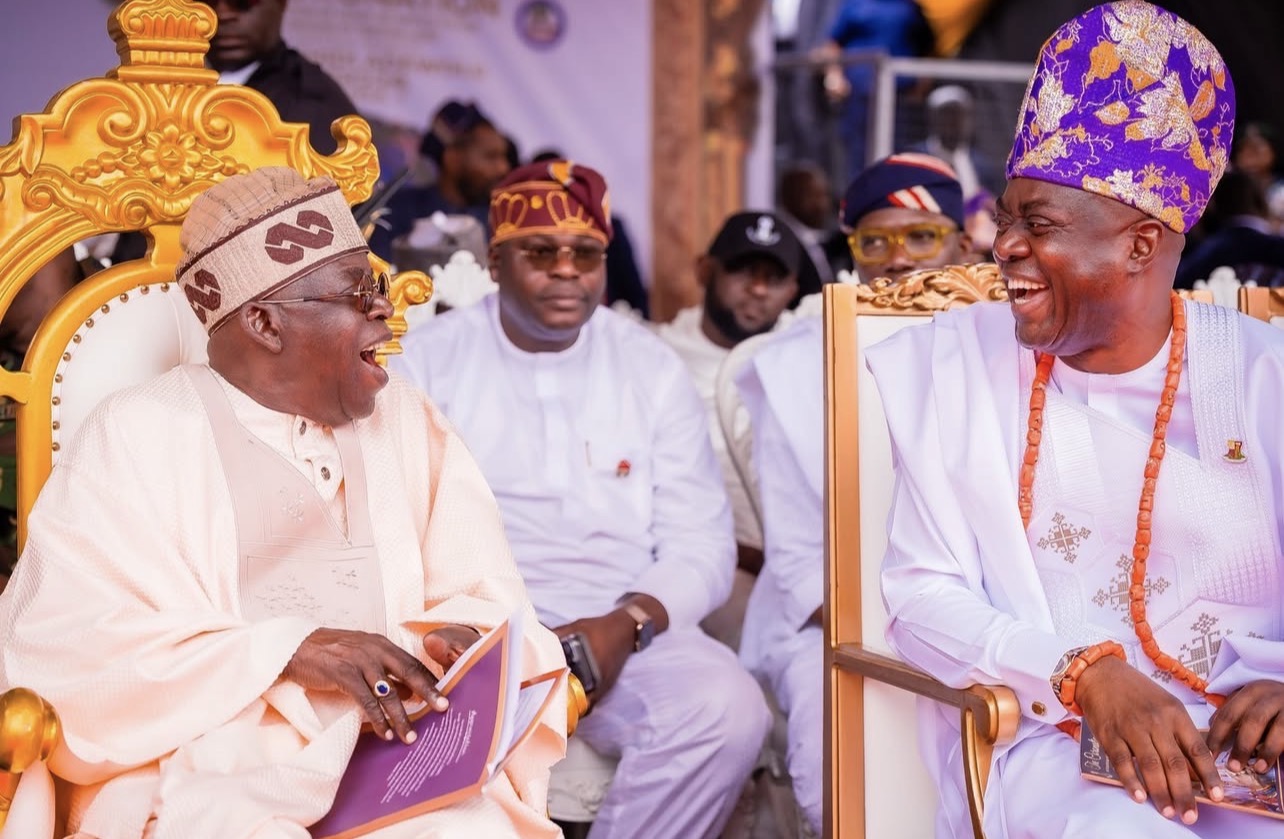
Governor Makinde, in his remarks, stressed that past disputes over succession are behind them and that the institution will be respected. For Ibadan residents, the question is what role Oba Ladoja will play beyond rituals and festivals. As a former governor with political savvy, many expect him to act as a bridge between the palace and the government on issues ranging from land disputes to youth development.
Observers are also watching how his reign will balance politics with tradition. Will his past in elective office strengthen the stool, giving it new relevance, or risk politicising an institution that has long prided itself on stability? That will be the story to watch in the months ahead.
A coronation with national resonance
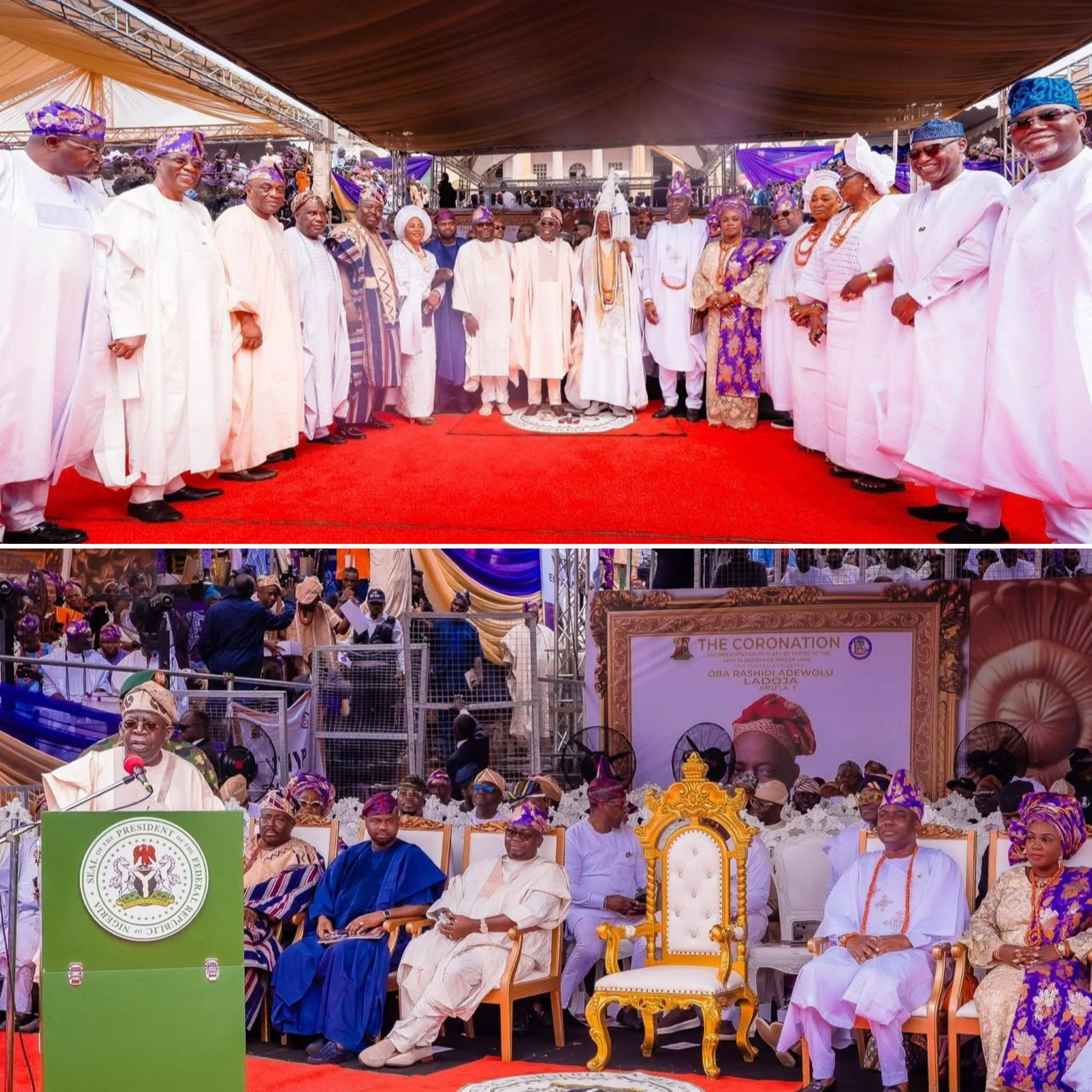
The guest list told its own story. Traditional rulers affirmed the relevance of the Olubadan stool. Political heavyweights and former governors signalled its continuing role as a platform for mediation and influence.
The coronation ceremony drew the Sultan of Sokoto, Alhaji Muhammadu Sa’ad Abubakar III; a former Kano State Governor, Senator Rabiu Musa Kwankwaso; a former Osun State Governor, Prince Olagunsoye Oyinlola; a former Ekiti State Governor, Dr. Kayode Fayemi; and a former Cross River State Governor, Donald Duke.
Earlier, the Afobaje of Ibadanland, Chief Waheed Popoola, performed the traditional rites by placing Akoko leaves on Oba Ladoja’s head at the Labosinde Compound, Oja’ba, before the monarch proceeded in a grand procession to Mapo Hall for the official ceremony.
The new Olubadan’s entourage included political allies such as Senator Sharafadeen Abiodun (Ibadan South) and former Oyo State governor candidate, Teslim Folarin.
Also in attendance were Senator Yunus Akintunde (Oyo Central), Senator Abdulfatai Buhari (Oyo North), and Olamijuwonlo Alao-Akala, who represents Ogbomoso North in the House of Representatives, alongside other federal and state lawmakers.
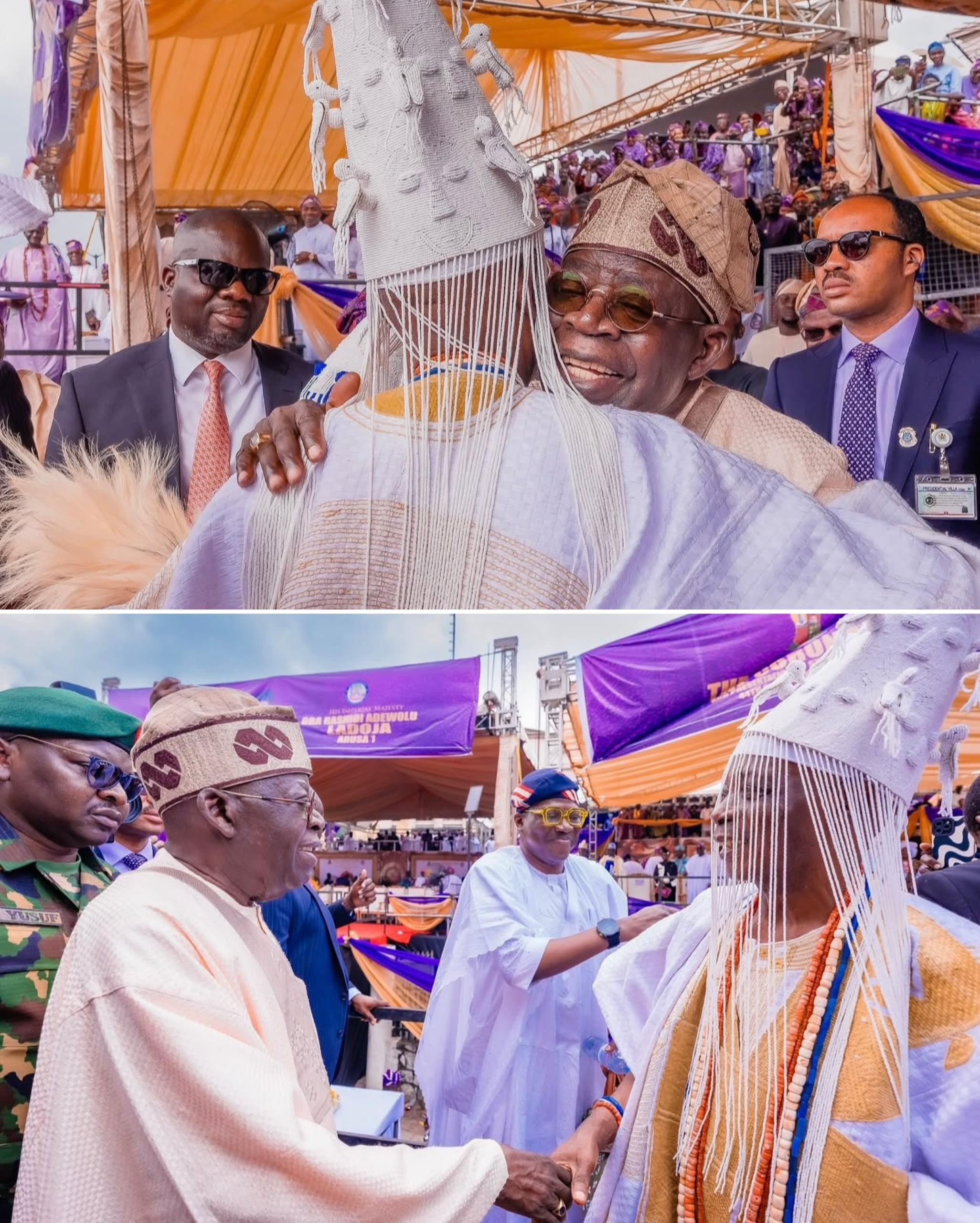
The presence of President Tinubu transformed the event into a national headline, showing that even in today’s Nigeria, traditional authority still commands respect.
The atmosphere on the ground was a mix of carnival and security alert. Cultural troupes, jubilant crowds and police cordons created the typical Nigerian blend of colour and caution that marks every major public event.
What next for Ibadan

The weeks ahead will bring courtesy visits, palace meetings and the first official pronouncements of Oba Ladoja’s reign. Attention will also stay on the Olubadan succession system itself, which has now once again proven its orderliness. And Nigerians everywhere will be curious to see how the rare crossover of a former governor into royalty shapes Ibadan’s future.
Conclusion
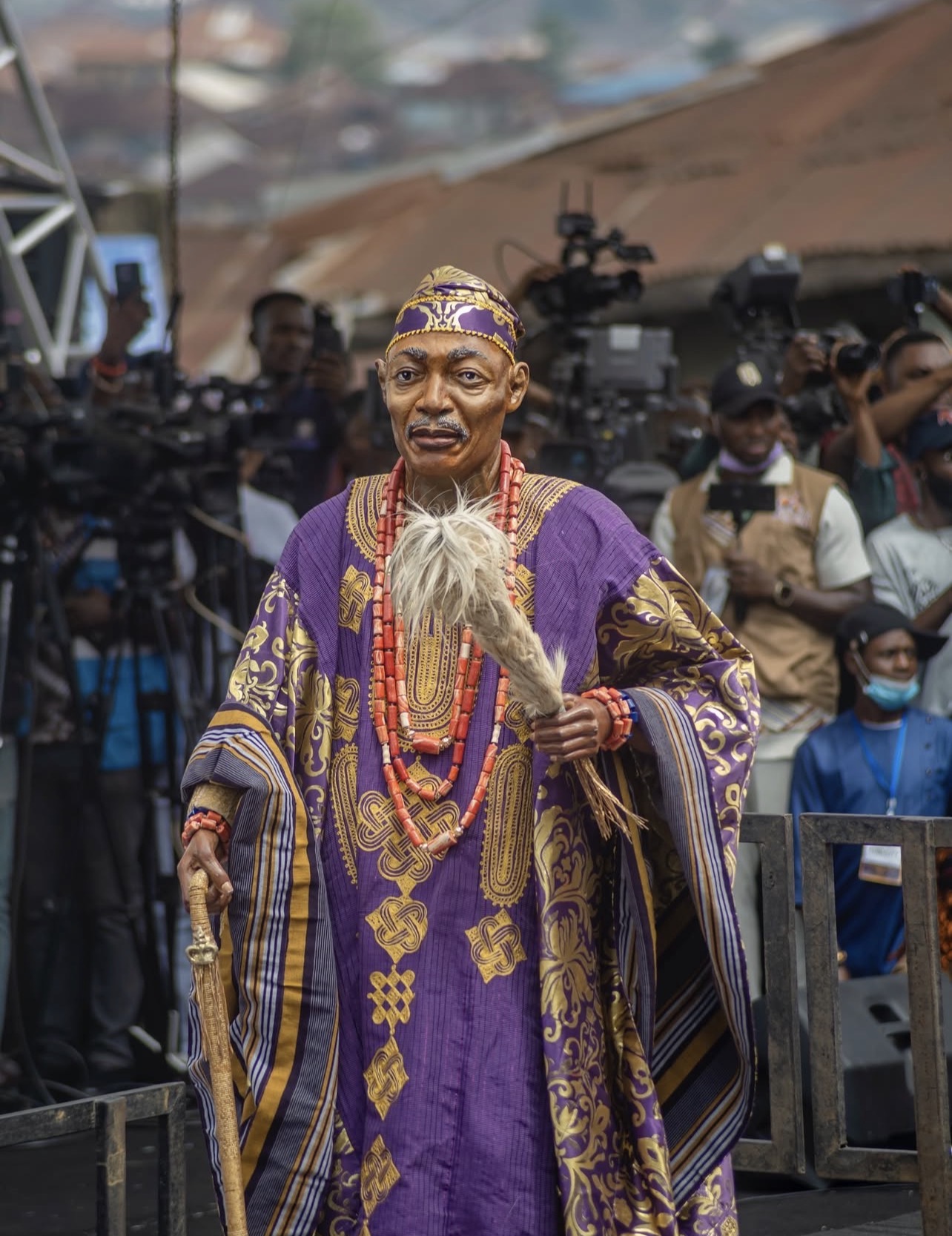
The crown is beaded, heavy with meaning and responsibility. Yesterday it settled on the head of a man who has known power in other forms. Ibadan has a new king, and the city has reminded Nigeria that tradition still matters. Whether Oba Rashidi Adewolu Ladoja becomes simply a custodian of rituals or an active partner in solving modern challenges is a story still unfolding. For now, Ibadan dances, and the palace gates are open.





